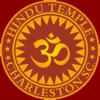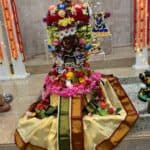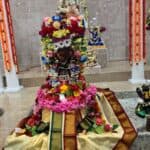Maha Shivaratri is an annual festival dedicated to the Hindu god Shiva, and is particularly important in the Shaivism tradition of Hinduism. Unlike most Hindu festivals which are celebrated during the day, the Maha Shivaratri is celebrated at night. Furthermore, unlike most Hindu festivals which include expression of cultural revelry, the Maha Shivaratri is a solemn event notable for its introspective focus, fasting, meditation on Shiva, self study, social harmony and an all night vigil at Shiva temples.
The celebration includes maintaining a “jaagaran“, an all-night vigil and prayers, because Shaiva Hindus mark this night as “overcoming darkness and ignorance” in one’s life and the world through Shiva. Offerings of fruits, leaves, sweets and milk to Shiva are made, some perform all-day fasting with vedic or tantric worship of Shiva, and some perform meditative Yoga. In Shiva temples, “Om Namah Shivaya“, the sacred mantra of Shiva, is chanted through the day. Devotees praise Shiva through the recitation of Shiv Chalisa.
Maha Shivaratri is celebrated over three or ten days based on the Hindu luni-solar calendar. Every lunar month, there is a Shivaratri (12 per year). The main festival is called Maha Shivaratri, or great Shivaratri, which is held on 13th night (waning moon) and 14th day of the month Phalguna. In the Gregorian calendar, the day falls in either February or March.




